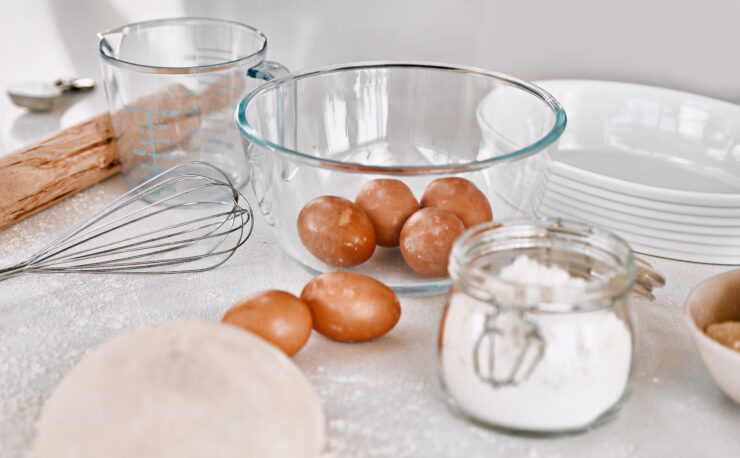You don’t need eggs when you have these egg substitutes.
The bird flu is sending egg prices soaring. But don’t let expensive eggs get you down! When eggs are off the table, turn to these pantry staples for an easy substitute.
Consumer educator Teresa Hunsaker shared fifteen ingredients you can use instead of eggs.
While egg substitutes can work wonders in many recipes, it’s important to keep in mind that they may not yield the exact same results as eggs. For instance, mashed bananas might work perfectly in breakfast muffins, but you may not want that banana flavor in your chocolate chip cookies. To choose the best substitute for your recipe, it’s helpful to understand the role eggs play in cooking:
- Leavening: Eggs help baked goods rise, so you may need to increase other leavening agents like baking powder or baking soda.
- Binding agent: Eggs help ingredients like fats and flour stay together.
- Moisture: Eggs add moisture to your batter.
- Texture: Eggs contribute to a smooth, tender texture in baked goods.
- Emulsify: Eggs help combine liquids that usually don’t mix, like oil and water.
- Thickener: Eggs help thicken custards and sauces.
- Glue/Sealant/Glaze: Eggs are often used to seal dough or glaze pastries.
Here are some egg substitutes you can try:
- Applesauce: 1/3 cup = 1 egg
- Aquafaba (chickpea liquid): 3 tbsp = 1 egg
- Avocado: ¼ cup mashed = 1 egg
- Buttermilk: ¼ cup = 1 egg (perfect for pancakes and muffins)
- Ground flaxseed: 1 tbsp flaxseed + 3 tbsp water = 1 egg
- Yogurt: ¼ cup = 1 egg
- Chia seeds: 3 tbsp water + 1 tbsp chia seeds = 1 egg
- Silken tofu: ¼ cup = 1 egg (works well in brownies and cakes)
- Carbonated water: ¼ cup = 1 egg
- Arrowroot starch: 2 tbsp + 3 tbsp water = 1 egg
- Mayonnaise: 3 tbsp = 1 egg
- Baking soda and vinegar: 1 tsp baking soda + 1 tbsp vinegar = 1 egg
- Water, oil, and baking powder: 2 tbsp water + 2 tsp baking powder + ½ tbsp oil = 1 egg
- Commercial egg replacers: These work well but are becoming harder to find.















Add comment